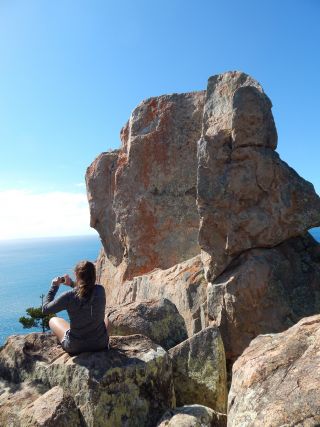Marriage
Predicting Who We Will Be
At age 18, could you predict who you are today?
Posted July 20, 2015

Imagine if at age 18, someone had handed you an envelope with your exact future at age 55. Mine would read something like this: married to a high-energy Jewish guy with a knack for finding great deals in the energy biz, two healthy kids in college, living in Dallas for the past 25 years, immersed in theater and brain research in equal measure. Upon reading this pinpoint accurate list in 1978, I would have folded up the prediction, handed it back to the soothsayer with a one-word assessment: Impossible.
Always a good student and driven, at 18 years I knew I'd do something radical to make the world a better place. Decked in my personal flavor of revolutionary garb, I was an east-coast centric, cigarette smoking, Catholic–raised, guitar-playing writer of angry love-sick ballads and wandering poetry. Good thing tattoos weren’t popular back then, because I’d no doubt have something ridiculous etched in an embarrassing spot. If someone had handed me an envelope at that age saying “Unmarried, dead by age 33,” I would have solemnly tucked the prediction in my journal. Instead, here I am, an oddity of stability: double nickel, still hitched and a self-professed Texan.
I’m in Australia this week, almost exactly 26 years from when my husband held a bright orange laminated sign that read “JULIE WILL YOU PLEASE MARRY ME?” in the Great Barrier Reef. This was before anyone considered all caps as screaming, but the trajectory of that sign was loud and clear. Make a decision. Change the course of your life. Say Yes. Luckily, I did.

When my 19 year-old daughter and I hiked to Dolphin Point on Hayman Island yesterday, I could not help but think about the impossible things that await in her life’s envelope. We passed “red fox” bats hanging in clusters, a joey who popped its head from his mom’s pouch, to clusters of blue butterflies who magically appeared and vanished, to a wide view of the Pacific from God’s Chair on Dolphin Point.

We chatted about near misses in my life, relationships that seemed so right at age 21 or 26 that careened into brilliant crashes. We played the “what if” game—what my life might have been with different choices. Some play this game with remorse; most of my choices come with the relief of a near miss. After listening to these stories, my daughter offered the best reason for paths left untaken. “I wouldn’t exist,” she said. The sun glinted off her hair with the same fiery confidence.
Her clarity reminded me that my most radical work has occurred in insignificant bits, in small steps taken without fanfare or a guaranteed outcome. Yesterday, instead of trying so hard to understand why or what happened, I soaked in the connection of a million dots formed from a single Yes. It felt good. I leaned back on God’s Chair and enjoyed the view.



